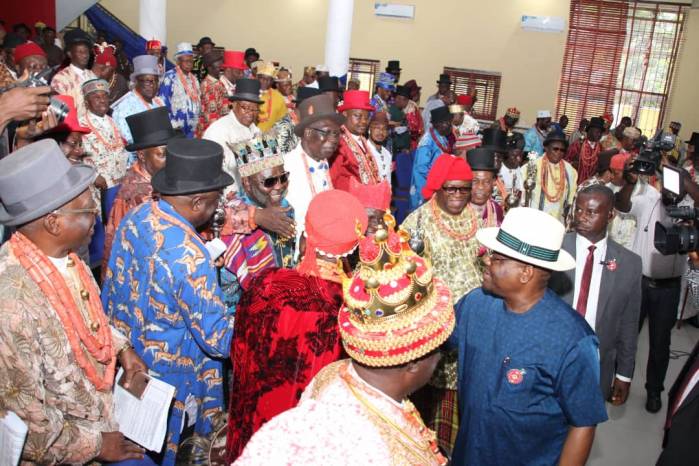The past few days have not been the best for the Nigerian Police Force. The widespread protests over the Special Anti-Robbery Squad (SARS) began as the massive young population became tired of SARS’ operations. They are demanding reforms of the police squad, which has been characterized by immense brutality, assault, illegal arrest, extortion, and the killing of peaceful protesters. Despite forcing the Inspector General of Police (IGP) to disband the unit, they are not satisfied as they want total police reforms and the officers in the squad department to face justice.
The Police Department had never been so humbled and overwhelmed by the Nigerian youth since its many years of establishment. What we are seeing does not only call for repackaging and rebranding of the police force; it also calls for an assessment of the police institution, its operations, and psychology as well as police conduct and style. While the ongoing condemnation against the Police Department occurred as a result of the scandalous murder of youths in Nigeria, it is on record that before then, violent police conduct has been rampant in Nigeria.
Available data show that police brutality has become a systemic epidemic. In Nigeria between 2013 and 2018, police brutality caused 841 deaths (NTS, 2020). The spike in the killings is not only limited to the police; there are reported cases linked to other military agencies as well. Civilians are being extorted, tortured, and killed by armed officers, particularly members of the Special Anti-Robbery Squad – SARS. The victims of these crimes are still waiting for justice because the anti-torture law that aims to provide justice has not been implemented. Despite a law criminalizing torture that was passed in December 2017, SARS officers continue to act with impunity as if they are above the law.
The recent arrest and torture of protesters have sparked several demonstrations across the nation to demand the end of SARS. The cases of brutality have prompted Nigerians to call for a reform of police through protests and campaigns. Hence, the continued and sustained protests are a result of long-term sentiments against the police force in Nigeria.
The police are a constituted body of persons empowered by a state to enforce the law, to ensure the safety, health, and properties of the citizens, and to prevent crime and civil disorder. This main objective of police agencies is rooted in the nine principles that informed the establishment of the modern concept of police.
In 1829, Sir Robert Peel established the London Metropolitan Police Force. He became known as the Father of Modern Policing, and his commissioners introduced a list of policing principles that remain as crucial and urgent today as they were two centuries ago. His nine policing principles are:
The fundamental mission for which the police exist is to prevent crime and disorder.
The ability of the police to perform its duties is dependent upon public approval of police actions.
Police must secure the willing support of the public in voluntary observance of the law to be able to secure and maintain the respect of the people.
The degree of cooperation of the people that the police are supposed to safeguard diminishes proportionately to the essential use of physical force.
Police seek and preserve public favor not by catering to public opinion but by continually demonstrating absolute impartial service to the law.
Police use physical force to the extent necessary to secure observance of the law or to restore order only when the exercise of persuasion, advice, and warning is insufficient.
At all times, the police should maintain a good relationship with the public. By doing so, the public will come to believe the ancient tradition that says that the law enforcement agents are for the community and the public is for the police. The police are the only members of the society paid to give full-time attention to duties which are incumbent on every citizen in the interests of community welfare and existence.
The police should always direct their action strictly towards their functions and never appear to usurp the powers of the judiciary.
The test of police efficiency is the absence of crime and disorder, not the visible evidence of police action in dealing with it.
While all the principles are against police brutality, numbers two and six recognize that the power of the police, which is to fulfill their functions and duties, is dependent on the public approval of their existence, actions, behavior, and on their ability to secure and maintain public respect. It also acknowledges the use of physical force only when the exercise of persuasion, advice, and warning is insufficient to obtain public cooperation.
To ensure observance of the law or to restore order, the police must use only the minimum degree of physical force which is necessary on any particular occasion for achieving a policing objective. These two principles not only oppose the brutal behavior of the police but also make it clear that in all aspects, they should be civil as well as obtain legitimacy and approval from the public. Thus, we cannot tolerate violence in the same community whose taxes sustain the police agency.
The profile of grievances against the police force ought to have been reviewed and evaluated long before now. In that light, those found guilty ought to have been excused from duty and quarantined until they are satisfied to be mentally and emotionally fit to provide policing functions. This notion brings us to the importance of psychological assessments and emotional intelligence of police officers. Managing police agencies and officers, therefore, requires constant capacity building training and exposures.
This idea should begin with the recruitment and enrollment stage. Police officers on duty face a range of potentially stressful situations and events like any other person. These could predispose them to stress, fatigue, and misconduct. In the words of Professor Oyesoji Aremu, often, they could also develop several traits like cynicism, aloofness, suspiciousness, neuroticism, and addictive behaviors. Most often, these have not been profiled by police management before police promotion, especially when they are due for evaluation.
The protest we see from our youth means that we have not learned our lesson as a nation. This protest also means that the Police Reform Act of 2019 of the disbanded Eight Senate is a failure (punch.com, 2019). Some of the sections in the reform show that some lessons are not learned, given the litany of police brutality, thus evoking the national protests that greeted it.
Our police still terrorized people at checkpoints and roadblocks. Anyone who travels from the Middle Belt to the eastern part of Nigeria will testify to the kind of treatment by SARS at these checkpoints.
We condemn the police brutality during these protests. We stand to learn from this by demilitarizing the police when relating to the public. In the words of professor Aremu, Nigeria not only needs to end SARS, it also needs value-added policing. In other words, we need a police culture that protects the sanctity of human life.
This notion is also called mission-based policing.
Police agencies in many countries of the world are more autonomous than what we have in Nigeria. France, for example, has a police force with jurisdiction over cities and other police force that focuses on rural areas. Others, such as England and Wales, have regional police forces that have some autonomy but must comply with federal government standards, particularly in training and investigating misconduct.
READ ALSO: World Food Day: Buhari Restates Commitment To Food Security, Price Stability
According to Amelia Cheatham and Lindsay Maizland, the United States has about eighteen thousand law enforcement agencies at the local, state, and national levels. Canada, which controls the police force at the municipal, provincial, and national levels has at least three hundred law enforcement agencies. Many experts have argued that standardizing training, oversight, and disciplinary procedures through a central authority could help to address the issues of policing in Nigeria. Others contend that the centralization of the police force can be a challenging system. It can create tensions between the local, state, and federal governments.
Maybe it is time to decentralize the Nigerian police force and start afresh. After dismantling the police, we may begin a state-by-state process of hiring a smaller, better trained—and, crucially, corruption-free—police force to replace it.
We have also not learned this lesson by reviewing the criminal justice system in Nigeria. The lack of trust for law enforcement that exists in so many communities is due in part to a lack of accountability and transparency. Too many failures to indict officers and too many acquittals have left communities feeling that there is no justice. When someone dies at the hands of the police, none of them is answerable, leaving people feeling furious and agitated. Hence, they have no option than to protest.
So that the public builds confidence in the police, the police must be transparent to the public, and the public must have information about them. The police agencies should not investigate themselves. Nor should justice depend on prosecutors who rely on local law enforcement for evidence in cases they bring. Instead, accountability systems should be directed by the communities, which the police departments are supposed to protect and serve.
There has always been a debate on police recruitment. Like every other person, police officers, regardless of status, or gender are first and foremost members of the public. What makes the difference is the uniform and guns they carry as symbols of authority. In the words of Professor Aremu, while police behavior could be a nexus to misconducts more often, some of the observed behavior traits like neuroticism and cynicism are learned or acquired while on the job. Here, we apply the Bad Apple theory of Adam Smith which suggests that, many police officers enter the police force with good intentions but rotted by negative and dysfunctional gang members. In the end, it breeds some negative traits such as brutality and corruption among them.
The protests we witness today are a wake-up call not only to end SARS but also for police reform, especially in civil policing. According to professor Aremu, police reformation is a function of three factors, the government, the police agency, and the public. The effort here is that the government should provide the means needed for police reforms so that they will be efficient and proactive. The actions of the government could not be more significant. For Professor Aremu, channeling the current protests into a transformative change will require leadership across local, state, and federal levels. But the federal government is in a unique position to be the vanguard, taking trailblazing steps toward transforming how police agencies interact with their communities.
The Nigeria Police should also reciprocate the same by providing mission-based policing in which the public would be seamlessly willing to cooperate with the agency.
And finally, the public needs to provide support to the police because the police department draws its legitimacy from the community. Thus, for Professor Aremu, if we put these steps together, it would become much more seamless to have the public police against violent police. Unfortunately, we have not learned the lessons that these steps can bring about. I will like to propose that every Nigerian life matters, hence every Nigerian should be treated as sacred by the police.
So, what is the big question? The feeling in Nigeria is that police brutality with the poor treatment of Nigerians runs deeper than just the name. Though the Inspector General of Police disbanded SARS, the elimination of one or more units within the police department and disseminating them into other police units is not enough. It will only offer solutions on the surface and not long-lasting solutions to the endemic issues bedeviling the Nigerian police force. The Nigerian police should begin disciplinary action as well as dismissal and public prosecution against erring officers and all those who restrain the rules of engagement in dealing with Nigerians. The Nigerian police should demonstrate faithfulness and commitment to ensuring accountability, restoring confidence, and sanitizing the system. They should set up an independent investigation panel to investigate violations of human rights by the disbanded SARS.
Also, the Nigerian police force should set up an expedited audit of various SARS detention centers across the country to ensure that those who are unfairly and unlawfully detained are immediately released while those against whom the police have credible cases are promptly charged to court and prosecuted by the law. The Nigeria Police should provide mission-based policing in which the public would be seamlessly willing to cooperate with them.
Although police training emphasizes the technical and tactical aspects of policing, the Nigerian police have a few programs that focused on police responses, problem-solving, mediation, and arrest. Hence, it is not surprising that many police officers perceive young people as criminals and respond to them based on that stereotype. Regardless of which way the police want to take, the systemic oppression of young people can only change through collective efforts.
Rev. Matthew Ma, S.J is a Jesuit priest and doctoral student in public and social policy at St. Louis University in the state of Missouri, USA.












